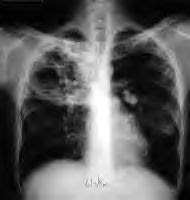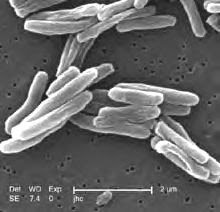A study has found that the WHO's tuberculosis programme in South Africa inadvertently helped a strain of TB-causing bacteria develop additional drug resistance.
Researchers from the University of KwaZulu-Natal's Nelson Mandela School of Medicine tracked the development of drug resistance in a strain of Mycobacterium tuberculosis over a 12-year period.
They found that by the time the WHO introduced their programme in South Africa in 2001 — using a second-line medication to combat multidrug-resistant strains of TB — at least one strain had already developed resistance to one or more of the second-line drugs.
But because the programme didn't conduct drug susceptibility tests, the new second-line medication was not only useless to TB patients infected with the resistant strain, but also led to the strain developing additional drug resistance. This is because when an M. tuberculosis strain is resistant to a drug, it survives and can subsequently evolve resistance to additional drugs. The strain eventually became extensively drug-resistant (XDR-TB), resistant to seven anti-TB drugs in total, including first-line and several second-line drugs.
http://tinyurl.com/2h88eo
WHAT'S NEW IN TUBERCULOSIS
Monday, 29 October 2007
Subscribe to:
Post Comments (Atom)





No comments:
Post a Comment